
Airlines are increasingly incorporating travel insurance products into their ancillary strategies to attract bookings, enrich customer experiences, and ultimately drive revenue growth. Our latest research, titled “Top 50 Airlines Travel Insurance Benchmark 2024,” uncovers the most innovative airline travel insurance strategies in the past three years, offering valuable insights for travel insurers seeking to partner with airlines or refine their own offerings.
Let’s have a closer look at each of these key trends:
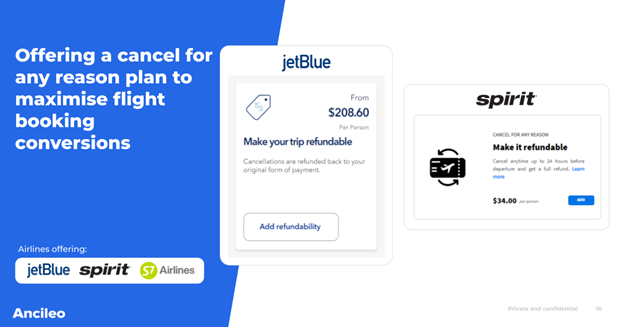
Many of the leading airlines are adopting CFAR plans, a game changer for boosting customer confidence and booking conversions. JetBlue, Spirit Airlines, and S7 Airlines are leading the charge, offering CFAR as an optional add-on, significantly boosting purchase decisions and attracting travelers seeking ultimate flexibility.
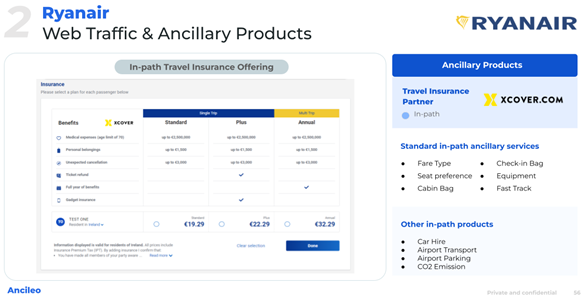
Another strategy gaining traction is the annual travel insurance plan, exemplified by airlines like Ryanair. This plan, ideal for frequent flyers, offers full year benefits and convenience, allowing travelers to purchase one plan and enjoy peace of mind for multiple trips. Airlines benefit through attracting and retaining loyal customers, creating a predictable revenue stream, and gaining valuable customer insights. As airlines embrace this strategy, it may pave the way for similar long-term coverage options across the travel industry.
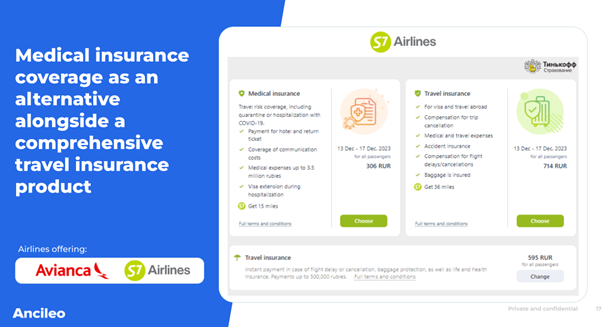
Recognizing the diverse travel needs, leading airlines are expanding their portfolios beyond comprehensive travel insurance to include targeted budget medical insurance in air travel options. Avianca and S7 Airlines, for example, offer standalone medical insurance plans, catering to those who already have trip cancellation coverage elsewhere. This allows airlines to tap into a broader customer base and cater to niche preferences.
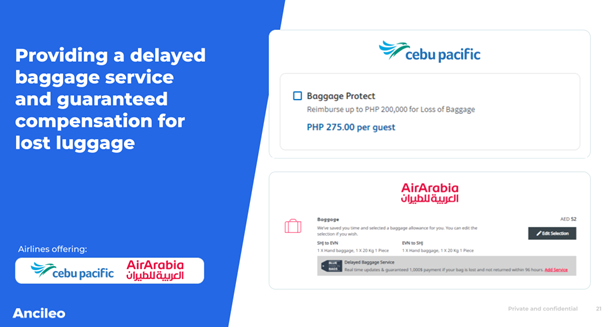
For many travelers, luggage woes are a top anxiety. Airlines like Air Arabia and Cebu Pacific are addressing this concern by offering comprehensive baggage insurance services, including delayed baggage tracking and guaranteed compensation for lost luggage. These proactive measures not only minimize stress for passengers but also build trust and brand loyalty, potentially leading to repeat bookings and enhancing airline loyalty through insurance.
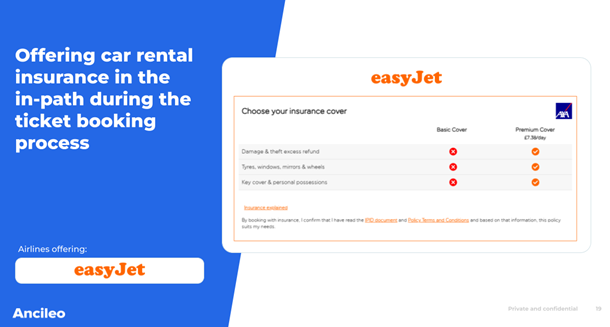

The ancillary arena extends beyond the immediate flight experience. EasyJet, for example, offers car rental insurance during the booking process, providing seamless in-path coverage for an essential travel add-on. Cebu Pacific takes it a step further with in-path home protection insurance, allowing cross-selling and catering to a wider range of journey needs. These strategies demonstrate airlines’ understanding of the interconnectedness of the travel ecosystem and their willingness to provide holistic solutions.
Our study reveals a clear trend: airlines are evolving beyond basic travel insurance. They are now crafting comprehensive travel insurance packages with innovative ancillary offerings that cater to diverse customer needs. Airline ancillary services insurance like CFAR plans, targeted medical coverage, comprehensive baggage services, and expanding into car rental and home protection insurance are just a few examples of this strategic shift.
As this trend continues, we can expect airlines to further personalize their offerings, leverage data-driven insights, and explore airline partnerships with travel insurers to create even more compelling journey packages. Travel insurers would be wise to take note of these burgeoning trends and adapt their strategies to capitalize on the evolving needs of airlines and travelers alike. One way to do this is by offering exclusive airline membership policy benefits or by tailoring their offerings to cater to air travel coverage and ancillary services.
Travel insurers have a unique opportunity to capitalize on the evolving airline travel insurance landscape. By understanding and responding to emerging trends, travel insurers can partner with airlines in mutually beneficial ways:
By partnering with airlines and embracing data-driven approaches, travel insurers can adapt to the changing travel landscape and remain competitive in the evolving market.
—————————————————————————————————————
These insights are an extract of our 2024 Top 50 Airlines Travel Insurance Benchmark report.
Meanwhile, you might be interested in our past years release: